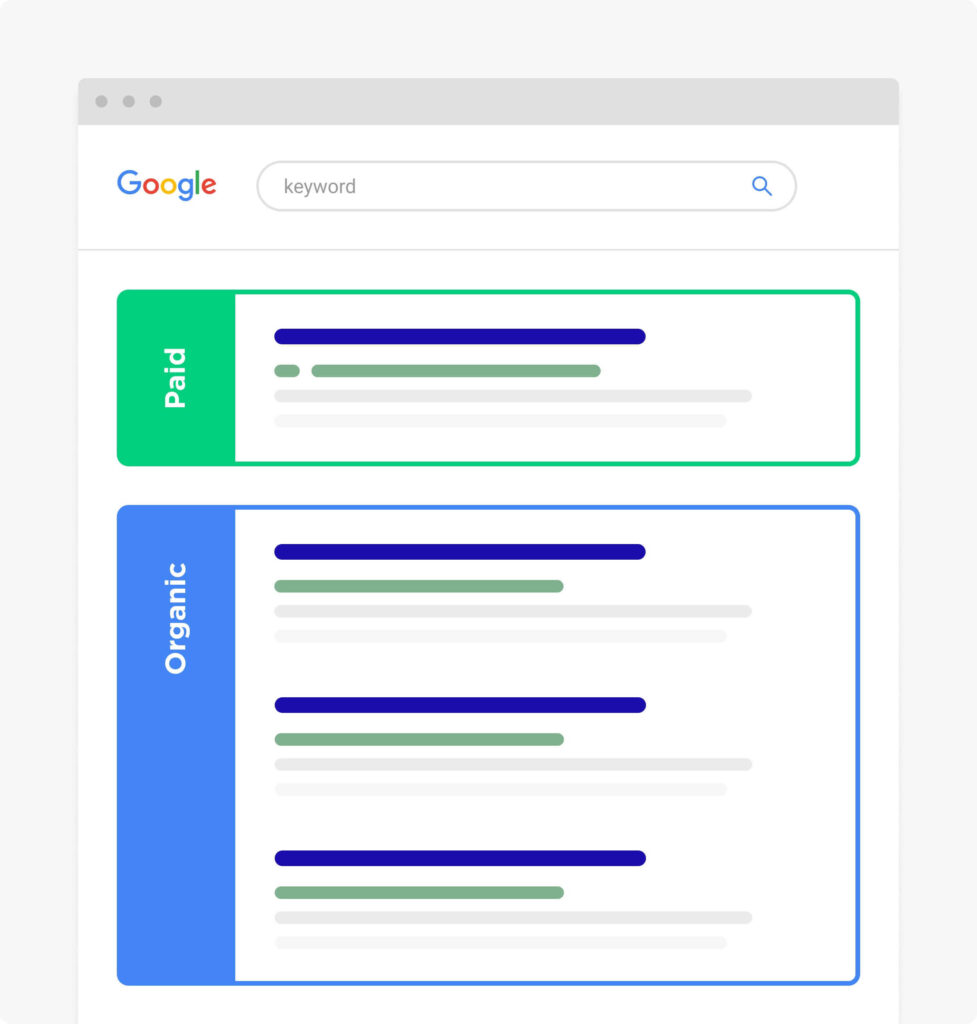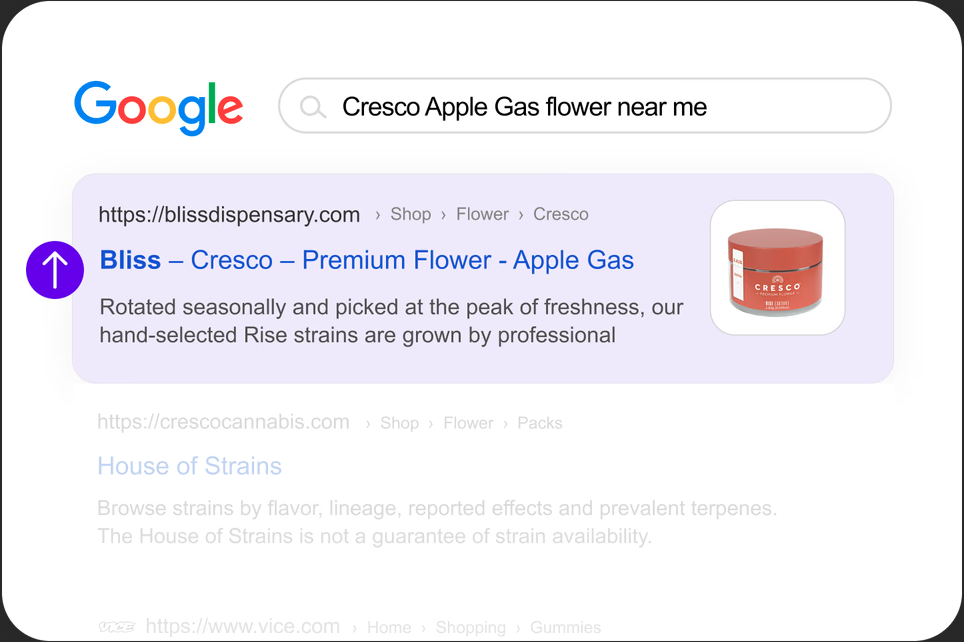Digital marketing comes in different folds. And as businesses and individuals battle to rank better on search engine result pages (SERPs), you must consider your options carefully. New businesses struggle with SERPs and knowing which SEO campaign to deploy is essential.
Sometimes, you might ask yourself, “organic keywords vs paid keywords: which is better?” There’s no straightforward answer to that. The solution is subjected to your specific budget, objectives, and knowledge of the marketplace.
As distinct as they appear, organic search vs paid search are vital aspects of digital marketing and even web design. This article will explore their differences and benefits in detail and how to integrate them for your web analytics.
What Does Organic Keywords Mean?
Organic keywords are keywords used to pull visitors to your website with the simple aid of search engine optimization (SEO). They are a sharp contrast to pay-per-click (PPC) keywords where you’d have to deploy paid search campaigns to rank on SERPs.
To rank higher on organic searches, you need to optimize your entire web page for organic keywords. Why? These keywords are specifically what people are searching for, and if Google finds your web pages valuable, it will rank them above others on SERPs. According to research, Google processes more than 3.5 billion searches daily.
Thus, if there’s no on-page keyword optimization on your web pages, it will be difficult ranking for those pages when people search them. You need to understand the nitty-gritty of organic keyword research to rank better during organic searches.
How To Do Organic Keywords Research
Organic keyword research is really easy to implement if you know what to do. There are different steps to take in carrying out this research. They include:
- Make a List of Topics Related to Your Business
The first step towards ranking your web pages on SERPs based on organic search is to curate a list of topics related to your business or website.
You can create up to 10 topic lists relevant to your website. This will make the foundation for more specific organic keywords added to your arsenal. You need to think about the topics people might search for that lead them to your website and jot them down.
- Fill Those Topics With Keywords
Now that you’ve got a handful of topics to infuse into your web pages, you need to identify some keywords that will fit into those topics. It could include keyword phrases that you think your targeted audience will be searching for.
For instance, if a topic you’d like to build on is ‘Organic SEO for Small Businesses,’ related keywords for that topic will include:
- What is Organic SEO
- Benefits of Organic SEO
- Digital marketing
- Organic SEO tools
That’s not to say these are only the keywords you will use. It only helps to give you a structure for your on-page optimization. In recent times, Google has been encrypting keywords. So, you might consider some of the keywords your website is already ranking for.
You can check it on Google Analytics or HubSpot’s Traffic Analytics Tool and note the keywords are redirecting people to your web pages.
- Consider User Intent
The next step in how to increase organic keywords is to identify user intent when searching these keywords in their browser. When people search for content online, they want to see results – regardless of the search keywords used.
Thus, Google will curate content that addresses their query rather than feeds them with websites loaded with those keywords. The reason is that keywords can have several meanings on a surface level.
One of the best ways to establish user intent is to enter the intended keywords on google and see the kind of results that show up. Ensure that the results google is showing are related to your website content before you commit to it.
- Take a Look at Related Search Items
Another way you can be creative in generating organic keywords is by looking at the related searches when you search content on google.
Take a look at the ‘People also ask’ and ‘Related searches’ sections for this ‘what is cryptocurrency?’
Take advantage of these other keywords and incorporate more topics into your website.
- Take Advantage of Keyword Research Tools
You can also build your research by utilizing an organic keyword research tool. These SEO tools can provide more ideal keywords that you can use along with the generated keywords for your web pages.
Here is a typical example of an organic keyword checker on ‘horseback riding’.
Some of the organic keyword research tools include:
These tools will help you with supplementary keywords you can incorporate into your web pages and domain. You can use SEMrush Organic Research Tool to get insights on the keywords your competitors are ranking for.
What is PPC?
PPC (pay-per-click) is a digital marketing process where webmasters run ads on Google Ads and pay a fee when their ads are clicked. Webmasters use PPC marketing to rank their websites on SERP and drive traffic, leads, and sales from their target audience.
PPC can help place your website before your prospective audience – which organic searches do not permit.
Paid Marketing
Paid marketing is a form of PPC, where brands target the audience based on their interests and previous interactions. Paid marketing goes beyond placing brands on to the top of SERPs. It extends to social media platforms and sponsored guest posts.
Have you ever visited Facebook or Instagram to find ads for products you were searching for? That’s paid marketing at work. The catch is you only pay when someone clicks on those ads. So, if you set a maximum budget of $200, the ad will continue to run until it has been exhausted.
Difference Between Organic Search And Paid Search
At this point, you’d want to know the difference between organic search and paid search before deciding on which strategy to deploy. Both are great for SEO marketing, but it’s essential to know the difference. Below is the difference between PPC vs SEO.
- Intent. Organic search uses keywords to attract traffic to your website with the aid of search engine optimization (SEO). On the other hand, paid search uses Google Ads to rank your website for specific keywords on SERPs.
- Position. Organic search usually shows up in the middle of the SERPs, while paid search shows up at the top of the search results pages.
- Timeframe. Organic search takes some time to work, as you’d work on on-page optimization. With paid search, you can start receiving clicks almost immediately.
- Tracking ROI. With Paid search, you can generate leads as soon as possible. It takes a while to start generating leads from organic searches.
- Relevance. Organic search is lasting with regular tweaks. Paid search ends as soon as the money budgeted is exhausted.

Organic vs Paid Search
We will use a tabular form to explore organic marketing vs paid marketing.
| Organic Search | Paid Search |
| Appears in the middle of SERPs | Appears at the top of SERPs |
| Gets moderate clicks | Gets more clicks |
| Make use of on-page optimization to rank in SERPs | Make use of Google Ads |
| Take a long time to rank higher on SERPs | Ranking is based on the amount budget for each campaign |
| It is long lasting | It will stop as soon as the budget for PPC ends. |
| It is free | It is paid for. |
| Slower to execute | Faster to execute |
Benefits of Organic Search
There are several benefits to organic search. Some of them include:
- Cost. Organic search costs are free to implement if you want to do it yourself. Most webmasters would resort to hiring an SEO specialist to help with their digital marketing.
- Credibility. Organic search boosts your brand credibility as you continue to rank higher on SERPs.
- Improve your online presence. Organic search can help improve your online presence – as more people are directed to your web pages.
- Sustainable. Organic search is more sustainable than PPC. You need to improve your keyword optimization for your site to appear higher on SERPs.
- Regular visitors. You amass regular and engaged website visitors with organic search.
- Brand building. Organic search is an excellent marketing strategy to build and expand your brand.
Benefits of Paid Search
Paid search also has its own benefits. They include:
- Faster Execution. Paid search is more immediate to execute compared to organic searches.
- More flexibility. Paid search comes with more flexibility. You can tweak your ad campaign for the ad copy, keywords, landing page, and ad extensions.
- Cost-effective. You only get to pay when someone clicks on the ad on SERPs with paid search.
- Measurable. With the web analytics on Google Ads, you can measure each campaign’s success.
Organic Search vs Paid Search: Which Is Better?
Between organic marketing vs paid marketing, there is no one better. You can choose anyone to deploy based on your interests, needs, and objectives.
For sustainability, you should opt for an organic search. However, for instant results, you should totally go for paid search. You can use paid marketing and search knowledge to work towards your on-page optimization for organic search.
So, both of them are relevant.
Conclusion
Organic and paid searches are an essential aspect of digital marketing. Thankfully, you know everything about them and how to implement them in your marketing campaign.




